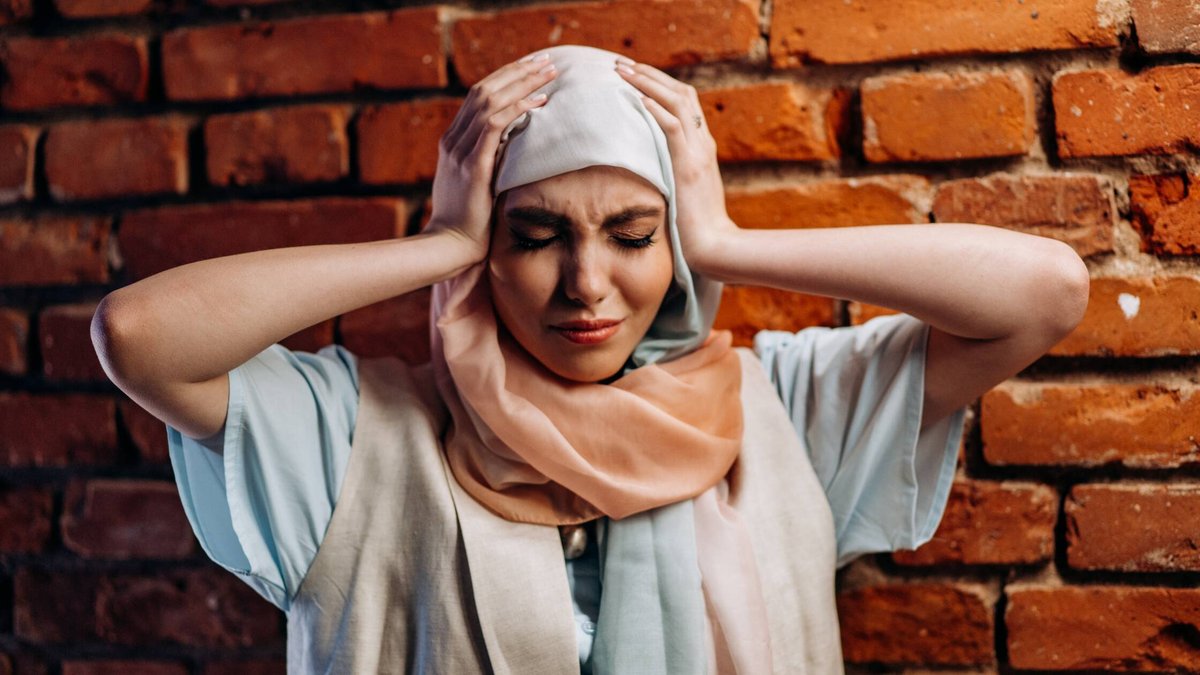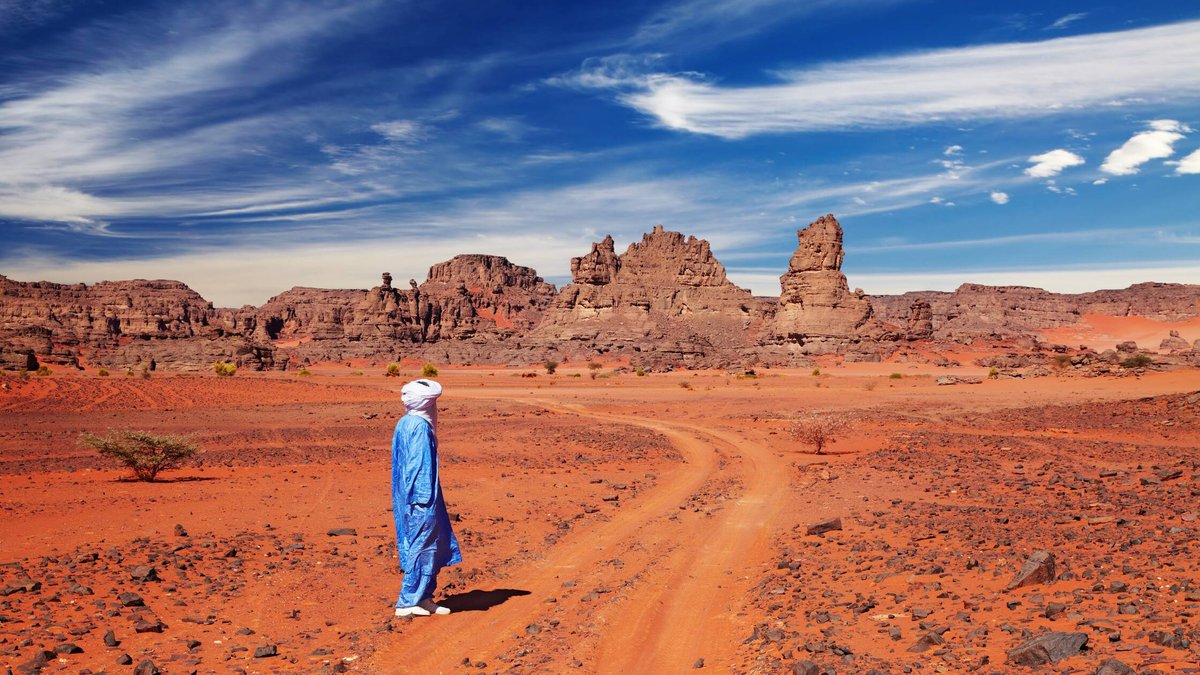On December 11, 2018, the Court of First Instance in Ain Mila, Algeria, sentenced Karim Hadjaze, a 37 year old doctor and member of the minority Muslim sect, Ahmadiyyat, to one year in prison and 20,000 dinar fine (US$175), on charges of collecting donations without a license and conducting worship in unauthorized places. In the same case, ten other co-defendants received sentences ranging from three to six months in prison.
In January, 2019, eight more Defendants face expedited trials on charges ranging from unauthorized practice of religion, worship in public places and other crimes prescribed in Article 144 of Algeria’s Penal Code. Human Rights Watch has reported that in December, 2017, alone, there were at least eight new trials in Algeria involving at least fifty Ahmadi defendants. Since June, 2016, more than 265 Ahmadi Muslims have faced criminal charges, some of them in more than one trial. This is significant because Article 144 of the penal code, Articles 1 and 8 which regulate obtaining donations without a license, Article 46 of the Associations Law which punishes those who worship in unauthorized places, and a myriad of other laws, allows for Ahmadi Muslims to face separate trials on multiple charges.

Who are Ahmadi Muslims and why are they being so unjustly targeted? The Ahmadiyyat Movement of Islam was founded in India in 1889 by Mirza Ghulam Ahmad. It is a revivalist movement that strives to adhere to the original teachings of the Prophet Muhammad and believes Ahmad is its Messiah. Ahmadi Muslims consider themselves to be Muslims and behave and believe as other Muslims do. However, they are widely regarded as heretical and are persecuted across the Middle East as such. It is estimated that there are 2,000 Ahmadi Muslims in Algeria.
The alarming rate of Ahmadi Muslim persecution in Algeria is troubling for several reasons. First, it underscores a growing rise of religious fundamentalism in a nation that is strategically positioned to help the West combat global terrorism. As a matter of fact, since the events of September 11, 2001, Algeria and the U.S. have entered into an uncomfortable alliance. While Algeria was the first Middle Eastern country to condemn the heinous acts of September 11, and has since worked with the United States counter-terrorism efforts, tensions have arisen because it will not allow US to operate unmanned aerial vehicles in its airspace. The suspicion and mistrust that tempers an uneasy alliance with the West, coupled with Algeria’s strategic, geographic position and increasing religious fundamentalism could result in serious breaches in global security.
It is important to note that when a government persecutes its minorities, this often becomes a stepping stone for increased instability and terrorism within that region. Therefore, the seemingly disconnected arrests and trials of Ahmadi Muslims can have significant backlash to any efforts to eradicate terrorism from the Middle East.
Second, Algeria’s treatment of minorities defies numerous international laws, including the Universal Declaration of Human Rights and the International Covenant on Civil and Political Rights (ICCPR), which Algeria has signed and ratified. Among other things, the Covenant requires that governments ensure the right to freedom of religion to everyone. However, the Algerian Constitution guarantees freedom of religion with a caveat; it states: “This freedom must be exercised in respect of the law.”

Herein lies the problem: while the constitution purports to provide freedom of religion for all persons, it also explicitly declares Islam to be its state religion. Additionally, it prohibits institutions from behaving in any manner that does not comport with Islamic morality. But who is supposed to judge Islamic morality and who will enforce it?
As discussed, Algeria’s constitution does not fully guarantee freedom of religion and has specific rules of worship for non-Muslims. Algeria’s government also declares any religious minority practice to be a criminal offence and bans conversion and blasphemy. Such blasphemy laws make proselytizing and public expression of the Ahmadi Muslim beliefs, as well as Christian/Jewish faiths, dangerous. Even casual conversations between friends and family members regarding faith can be grounds for blasphemy charges. This leaves the regulation of religious practice to local Islamic clerics and provincial government bodies.
Other laws and regulations provide Muslims and non-Muslims the freedom to practice their religion as long as they respect public order, morality, and the rights and basic freedoms of others. Again, it is not clear what constitutes public order or morality. Such breaches of various laws are punished with one to three years of imprisonment, and fines between 100,000 to 300,000 Algerian dinars (about 900 to 2,700 US dollars).

Religious intolerance and hostility has spread to such a point that minorities have become wary of their neighbors. As a result, Algerian Jews, Christians and Ahmadi Muslims have tried to keep a low profile. Violent extremists have also used these laws as a means to justify the killing of religious minorities.
According to Open Doors, an advocacy group that aims to raise awareness of Christian persecution throughout the world, Christians in Algeria are facing increasing societal discrimination when it comes to renting homes, finding jobs and securing land or property to use as a place of worship. In fact, Christian churches have been ordered to stop all religious activities. In July, 2016, Slimane Bouhafs, a Christian, was arrested for insulting Islam and received the maximum sentence of 5 years. It was only after increased foreign pressure, that the president issued a pardon and Bouhafs served 18 months instead
Therefore, while the Algerian Constitution provides religious freedom for all on its face, the reality reflects much to the contrary. There is no attempt by the government to curb protect the religious practice or expression of minorities.
Similarly, Algeria’s own political leaders have little regard for political correctness. In 2016, the Minister of Religious Affairs, Mohamed Aissa, declared that the government had brought criminal charges against Ahmadis to “stop deviation from religious precepts”. Meanwhile, Ahmed Ouyahia, then Chief of Cabinet to President Abdelaziz Bouteflika, claimed that Ahmadis enjoyed neither human rights nor freedom of religion because Algeria had been a “Muslim country for 14 centuries”.
When a state fails to protect its religious minorities, it equates to the passive acceptance of their persecution; it tacitly encourages and inevitably emboldens religious fundamentalism and extremism. Furthermore, it will come as no surprise that nations that encourage religious or ideological extremism are inclined to political instability of the most infectious kind. Therefore, it is prudent that we recognize the problem and make valiant attempts to curb its potentially widespread consequences.
Do you believe you are persecuted due to your religious beliefs? Call our office, we might be able to help. Call us at 630 504 0648.
Sources
Algeria: New Trials Shake Ahmadi Minority. Human Rights Watch 2018
https://www.hrw.org/news/2018/01/22/algeria-new-trials-shake-ahmadi-minority
Algeria: Stop Persecuting a Minority. Human Rights Watch September 2017 https://www.hrw.org/news/2017/09/04/algeria-stop-persecuting-religious-minority (accessed 2/28/2019)
Offences related to religion include article 144 (2) of the penal code, which provides that any individual who insults the Prophet Mohammed or denigrates the creed or prophets of Islam through writing, drawing, declaration, or any other means, will receive three to five years in prison, and/or be subject to a fine of between 50,000 and 100,000 Algerian dinars (between about US$450 and US$900). In addition, although Algeria permits religious organizations to participate in humanitarian work, it makes proselytizing by non-Muslims an offence punishable by a fine and up to five years imprisonment for anyone “who incites, constrains, or utilizes means of seduction tending to convert a Muslim to another religion; or by using to this end establishments of teaching, education, health, social, culture, training . . . or any financial means”. Global Legal Research Directorate, Algeria,’ Laws Criminalizing Apostasy, Library of Congress, http://www.loc.gov/law/help/apostasy/#_ftn11, (accessed 18th March 2018);
Id. Human Rights Watch 2018https://www.hrw.org/news/2018/01/22/algeria-new-trials-shake-ahmadi-minority
What is Ahmadiyyat? https://www.alislam.org/library/book/what-is-ahmadiyyat/ (accessed 26 February 2019);
Algeria: Stop Persecuting a Religious Minority, Human Rights Watch, 4th September 2017.
Boulter, Emily. An awkward alliance-US-Algeria security cooperation. Global Risk Insights 2016.
See Algeria’s Constitution https://freethoughtreport.com/countries/africa-northern-africa/algeria/ (last accessed 28 February 2019)
United States Department of State Report on International Religious Freedom-Algeria, August 15, 2017.
Amnesty International, June 2017 Report. https://www.amnesty.org/en/latest/news/2017/06/algeria-wave-of-arrests-and-prosecutions-of-hundreds-of-ahmadis/
U.S Report on Religious Freedom in Middle East, Wilson Center https://www.wilsoncenter.org/article/us-report-religious-freedom-middle-east
Ahmad, Usman. Persecution of Ahmadis. https://thewire.in/external-affairs/persecution-ahmadis-evidence-growing-religious-intolerance-algeria

